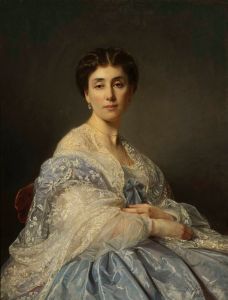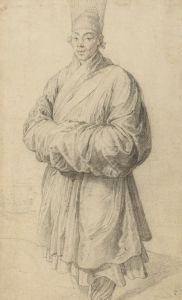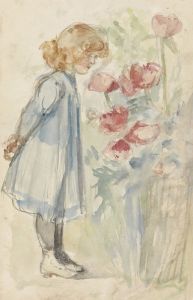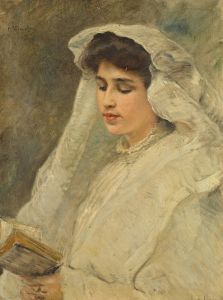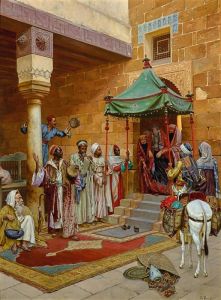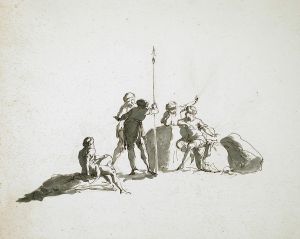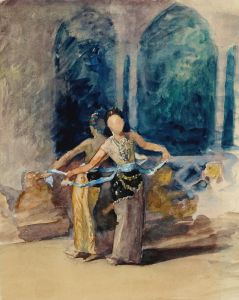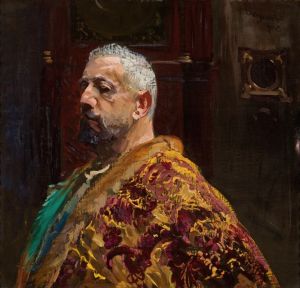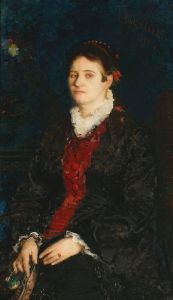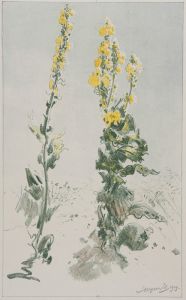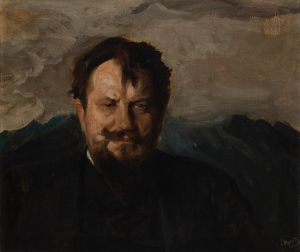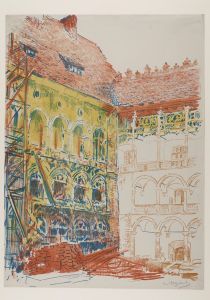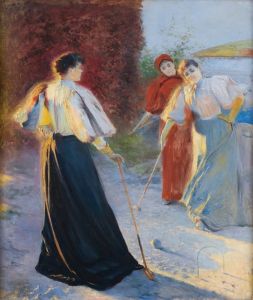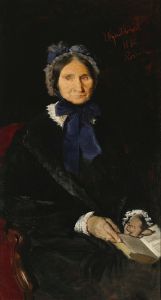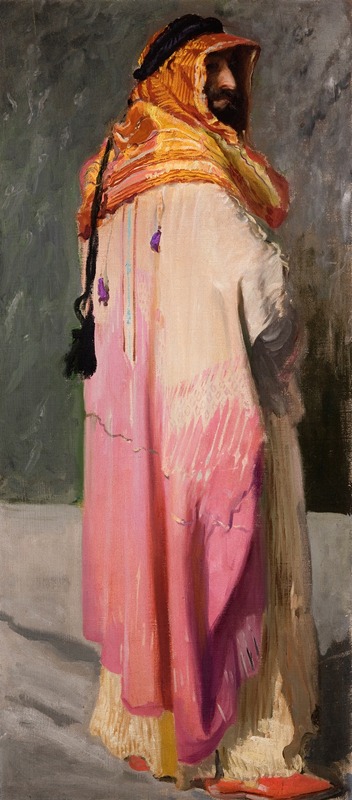
Portrait of Feliks Jasieński Dressed as a Bedouin
A hand-painted replica of Leon Wyczółkowski’s masterpiece Portrait of Feliks Jasieński Dressed as a Bedouin, meticulously crafted by professional artists to capture the true essence of the original. Each piece is created with museum-quality canvas and rare mineral pigments, carefully painted by experienced artists with delicate brushstrokes and rich, layered colors to perfectly recreate the texture of the original artwork. Unlike machine-printed reproductions, this hand-painted version brings the painting to life, infused with the artist’s emotions and skill in every stroke. Whether for personal collection or home decoration, it instantly elevates the artistic atmosphere of any space.
"Portrait of Feliks Jasieński Dressed as a Bedouin" is a notable painting by the Polish artist Leon Wyczółkowski. Created in 1908, this work is a striking example of Wyczółkowski's skill in portraiture and his ability to capture the essence of his subjects. The painting depicts Feliks Jasieński, a prominent Polish art collector, critic, and patron, dressed in the traditional attire of a Bedouin.
Leon Wyczółkowski (1852-1936) was a key figure in the Young Poland movement, which sought to rejuvenate Polish art and culture at the turn of the 20th century. Wyczółkowski was known for his versatility, working in various mediums including painting, drawing, and printmaking. His works often featured vivid colors and a keen attention to detail, characteristics that are evident in this particular portrait.
Feliks Jasieński (1861-1929), the subject of the painting, was an influential figure in the Polish art world. He was an avid collector of art and a supporter of contemporary Polish artists. Jasieński's collection included works by many of the leading artists of his time, and he played a significant role in promoting Polish art both within the country and internationally. His contributions to the arts were widely recognized, and he was known for his distinctive personality and eclectic tastes.
In "Portrait of Feliks Jasieński Dressed as a Bedouin," Wyczółkowski captures Jasieński in an exotic and somewhat theatrical guise. The choice of Bedouin attire is intriguing and reflects Jasieński's fascination with different cultures and his adventurous spirit. The portrait is characterized by its rich color palette and meticulous attention to the textures and patterns of the clothing. Wyczółkowski's use of light and shadow adds depth and dimension to the figure, creating a lifelike and dynamic representation.
The painting is also notable for its psychological depth. Wyczółkowski manages to convey Jasieński's complex character through his expressive face and confident posture. The portrait suggests a man of intellect and curiosity, someone who is both a connoisseur of art and a participant in the cultural dialogues of his time.
"Portrait of Feliks Jasieński Dressed as a Bedouin" is housed in the National Museum in Kraków, Poland. It is part of the museum's extensive collection of Polish art and is considered one of Wyczółkowski's masterpieces. The painting not only highlights the artist's technical prowess but also serves as a testament to the vibrant cultural life of early 20th-century Poland.
In summary, Leon Wyczółkowski's "Portrait of Feliks Jasieński Dressed as a Bedouin" is a significant work that encapsulates the artistic and cultural dynamism of its era. Through his masterful portrayal of Jasieński, Wyczółkowski offers a glimpse into the life and personality of one of Poland's most important art patrons, while also showcasing his own remarkable talent as an artist.





